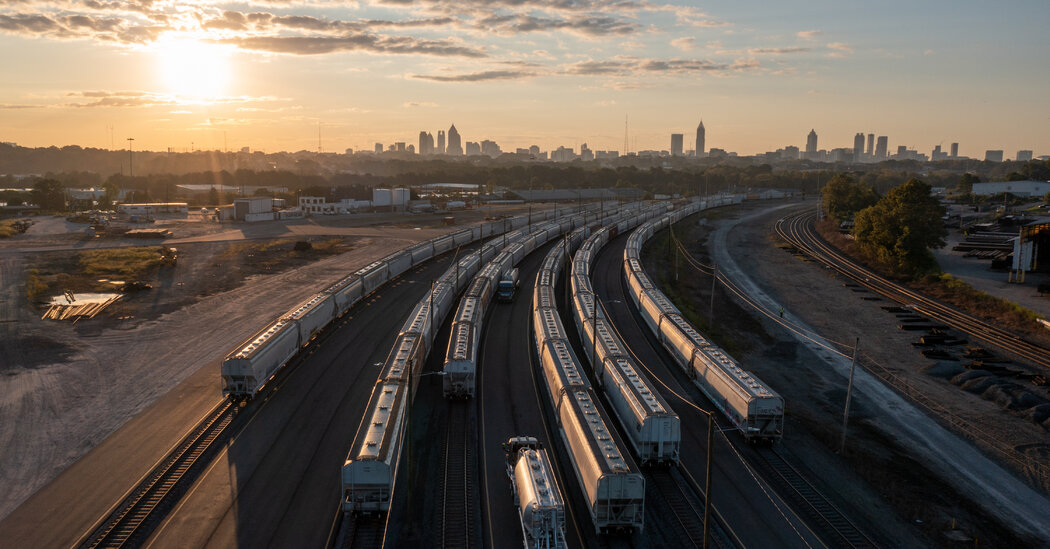
Workers say that while they have paid vacation and days allotted for personal leave, the constraints employers impose — like requiring vacation to be taken in limited windows that are far oversubscribed, or simply rejecting a proposed personal day — severely limit their options as a practical matter.
Shippers have grown frustrated, too.
Rail cars full of grain sat at production facilities in the Midwest for weeks at a time earlier this year, far longer than typical, said Max Fisher, the chief economist and treasurer for the National Grain and Feed Association.
Chemical manufacturers, who rely on freight rail to move their products, have grown increasingly frustrated with the carriers since December, according to three surveys conducted by the American Chemistry Council, an industry association. The latest, conducted in July, found that 46 percent of the companies felt that rail service was getting worse, while only 7 percent said it was improving.
“Freight rail has been a constant thorn in our side and been a significant challenge for our members for quite some time,” said Chris Jahn, the organization’s chief executive.
While the labor agreement announced on Thursday may avert a strike, it is unlikely to resolve the deeper issues that have put unions and rail carriers on a collision course. Even if carriers wanted to turn back the clock on efforts to increase efficiency, they would have shareholders to answer to.
After Bill Ackman, the activist investor, won a proxy battle over the freight carrier Canadian Pacific a decade ago, the company hired Hunter Harrison, who pioneered P.S.R., as its chief executive. Mr. Harrison imposed the system there and then at CSX after joining that company in 2017, prompting investors to pressure other carriers to follow suit to eke out similar efficiencies.
“Lurking in the background is the constant threat of shareholder activism if any of the railroads’ operating ratios become outliers on the high side,” Mr. Paterson said in testimony to the Surface Transportation Board this spring.